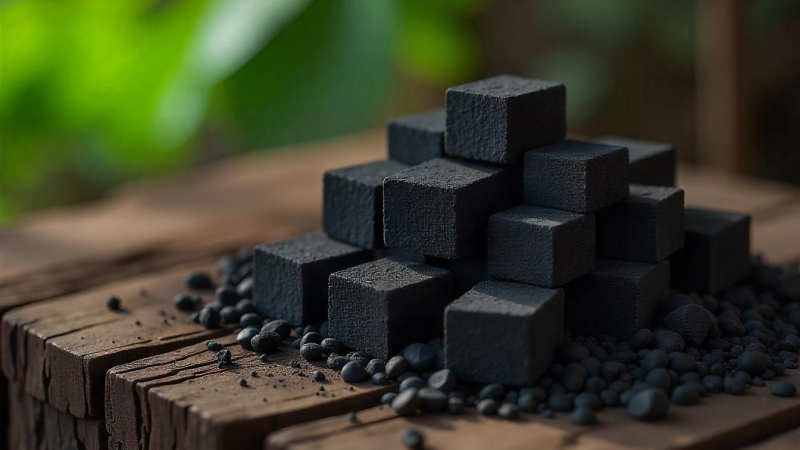Carbonization of Coconut Shells for Charcoal Briquettes

Coconut charcoal briquettes have become a popular alternative to traditional wood charcoal due to their sustainability, efficiency, and long-lasting burn time. The secret behind their superior quality lies in the carbonization of coconut shells, a process that transforms raw coconut shells into high-carbon charcoal with exceptional burning properties.
Understanding the Carbonization of Coconut Shells
Carbonization is a crucial step in producing high-quality coconut charcoal briquettes. It involves heating coconut shells in a controlled, low-oxygen environment to remove moisture, volatile compounds, and unwanted residues. This process enhances the carbon content, ensuring a cleaner and more efficient burning fuel.
The carbonization process consists of several stages:
- Drying – Coconut shells are dried to reduce moisture content, which enhances combustion efficiency.
- Pyrolysis – The shells are heated in a kiln or furnace at temperatures between 400°C and 700°C, leading to the breakdown of organic matter and the release of gases.
- Cooling – Once carbonization is complete, the charcoal is cooled before being processed into briquettes.
Proper carbonization ensures that the end product is of high quality, producing little smoke and offering long-lasting heat. This process also affects the hardness and durability of the briquettes, making them suitable for both residential and commercial applications. By maintaining precise temperature control and using sustainable methods, producers can create coconut shell charcoal that outperforms other types of fuel in terms of efficiency and environmental impact.
Why Choose Coconut Charcoal Briquettes?
1. High Carbon Content for Better Performance
Thanks to the carbonization of coconut shells, coconut charcoal briquettes have a high fixed carbon content, typically above 80%. This results in a longer burning time and a higher calorific value compared to wood-based charcoal.
2. Low Ash and Smoke Production
One major advantage of coconut charcoal briquettes is their minimal ash and smoke production. This makes them ideal for indoor cooking, grilling, and even industrial applications where clean combustion is essential. The low amount of ash also means less maintenance and cleaning, providing a hassle-free experience for users.
3. Eco-Friendly and Sustainable
Using coconut shells as a raw material for briquettes reduces environmental impact. Unlike traditional wood charcoal, which contributes to deforestation, coconut shell charcoal utilizes an agricultural byproduct, making it a sustainable energy source. Additionally, it helps reduce waste from the coconut industry, ensuring a more circular and eco-conscious production cycle.
4. Odorless and Tasteless
Coconut charcoal briquettes do not emit any unpleasant odors or alter the taste of food, making them a preferred choice for barbecuing and shisha. Their consistent burn also ensures an even heat distribution, making cooking more efficient and enjoyable.
The Role of Jacoid in High-Quality Coconut Charcoal Briquettes
Jacoid specializes in producing premium coconut charcoal briquettes using advanced carbonization techniques. By optimizing the carbonization of coconut shells, Jacoid ensures that their briquettes meet the highest industry standards, offering superior burn time, high heat output, and eco-friendly benefits. Their innovative production process ensures uniformity in size, quality, and performance, making their briquettes the preferred choice for both commercial and residential use.
Conclusion
The carbonization of coconut shells plays a vital role in producing top-quality coconut charcoal briquettes. This process enhances carbon content, minimizes waste, and provides an environmentally friendly alternative to conventional charcoal. With companies like Jacoid leading the industry, consumers can enjoy efficient, sustainable, and high-performing coconut charcoal briquettes. By choosing coconut shell charcoal, users contribute to a cleaner environment while benefiting from a reliable and efficient fuel source.
